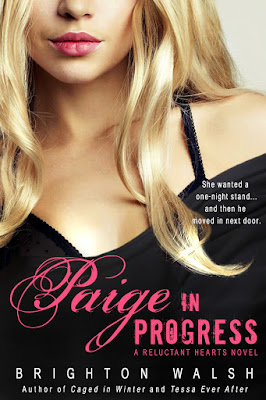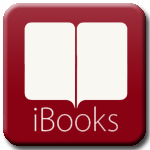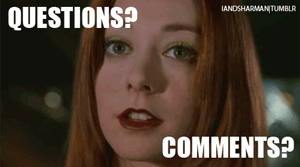The dreaded query letter. Not as feared as the daunting synopsis, but equally as important.
The query letter is one of your most important tools in acquiring representation for your novel. You can write the most incredible, sharp, and well-paced novel in the universe, but if your query letter is lacking, there is a good chance no one will see the words on your manuscript.
That’s because query letters are your first impression with the agent or editor you’re trying to contact. Many ask for the first five pages along with the query letter, but the query is what they read first. So it is extremely important to hook them instantly.
I know the process of breaking your book down to a mere 200-300 words seems like an impossible task, but when you narrow your concept down to its most important form, it really can be an enjoyable experience.
There are countless books, blogs, and authors willing to share their advice on how to write the perfect query letter, and I won’t pretend to know it all, but after four years as a PitchWars Mentor, I have read hundreds of queries—some I can remember today—they were that good.
For me, I want the stakes up front—or the sizzle—what is at risk for your character and why I should care.
Let’s look at an example (and since my two year old daughter has this movie and soundtrack on repeat since birth it seems) how about Frozen?
Princess Anna must find her sister, Queen Elsa, and get her to stop the eternal winter her special powers set off, or their kingdom and everyone in it will perish.
First line, we have stakes (kingdom will perish) and the characters (a pair of sisters, one of which has supernatural powers) This draws the reader in and pushes them to the next line.
Trekking across a treacherous, frozen kingdom, Anna braves the cold alone with the hopes that her unflinching love for her sister will be enough to convince her to bring back summer and return to the kingdom.
Second line, highlight the reason the hero/heroine has taken the task upon himself/herself. This helps connect the reader to the main character.
But Elsa isn’t as easy to convince as Anna thought, and in an overwhelming panic, Elsa accidentally freezes Anna’s heart—doing the one thing she’s always feared most, harm her sister.
Third line, insert the conflict—what prevents the hero/heroine from achieving her task.
As Anna flees an attack from Elsa with help from a couple friends she met along her journey, she must decide what is more important—save herself from a quickly approaching frozen death, or use her last breath to save her sister and the kingdom in the process.
Fourth line, the stakes are at their highest and the hero/heroine must make a choice, one that will either make or break them. The conflict resolution is present, but the reader won’t know how they solve it unless they read the book (or synopsis) You want to show the reader that your hero/heroine has a way to achieve his/her goal, but you don’t have to give away the ending. The main goal is to gain their interest instantly (show the stakes) then connect them to the character (show them their motivations) and then use the higher stakes to create tension (Anna is on the brink of death) and finally, show how she can or cannot solve her conflict and the consequences of either choice (her life or the life of her sister and kingdom)
Let’s see it all together now.
Princess Anna must find her sister, Queen Elsa, and get her to stop the eternal winter her special powers set off, or their kingdom and everyone in it will perish.
Trekking across a treacherous, frozen kingdom, Anna braves the cold alone with the hopes that her unflinching love for her sister will be enough to convince her to bring back summer and return to the kingdom.
But Elsa isn’t as easy to convince as Anna thought, and in an overwhelming panic, Elsa accidentally freezes Anna’s heart—doing the one thing she’s always feared most, harm her sister.
As Anna flees an attack from Elsa with help from a couple friends she met along her journey, she must decide what is more important—save herself from a quickly approaching frozen death, or use her last breath to save her sister and the kingdom in the process.
This is the plot at it’s most basic, but at 145 words it hooks the reader quickly, allowing them to decide if the book would be a good fit for their list or not. Follow this up with a line or two about yourself, listing any writing credentials or awards that are relevant, and then why you chose the agent/editor to query. And there should always be a reason you chose the specific agent/editor (because you’ve done copious amounts of research on why your book would be perfect for them to represent) :)
This isn’t a surefire formula. I’m not sure one exists, because no matter what, this business is a subjective one. It can be a perfect book and query and an agent can pass on it because they’ve just bought a winter-wonderland book or maybe they feel like their not the best person to represent a snow themed novel because they have a huge fear of snowmen (you get the idea) That is why researching the agent and the books they represent, or the editor and the books they’ve sold at the house, is so important. Knowing the genres they like and what they’ve recently acquired will go a long way in helping you narrow your search down to the perfect list of people to query. And combining all these efforts together will give you the best odds.
querytracker.net is an amazing website that helped me when I was in the query trenches (twice) It not only helps you organize and track agents and their wish lists, but there is a community of people who are in the same position as you. Many are even willing to swap advice on queries! Being surrounded by like minds (even virtually) really helps while you’re waiting the weeks and sometimes months it takes to get a response on a query.
So go ahead and congratulate yourself again on completing your novel and then run have a conversation with your hero/heroine on what is most at stake for them. They’ll let you know where to start your query and then the real magic begins!!!





























